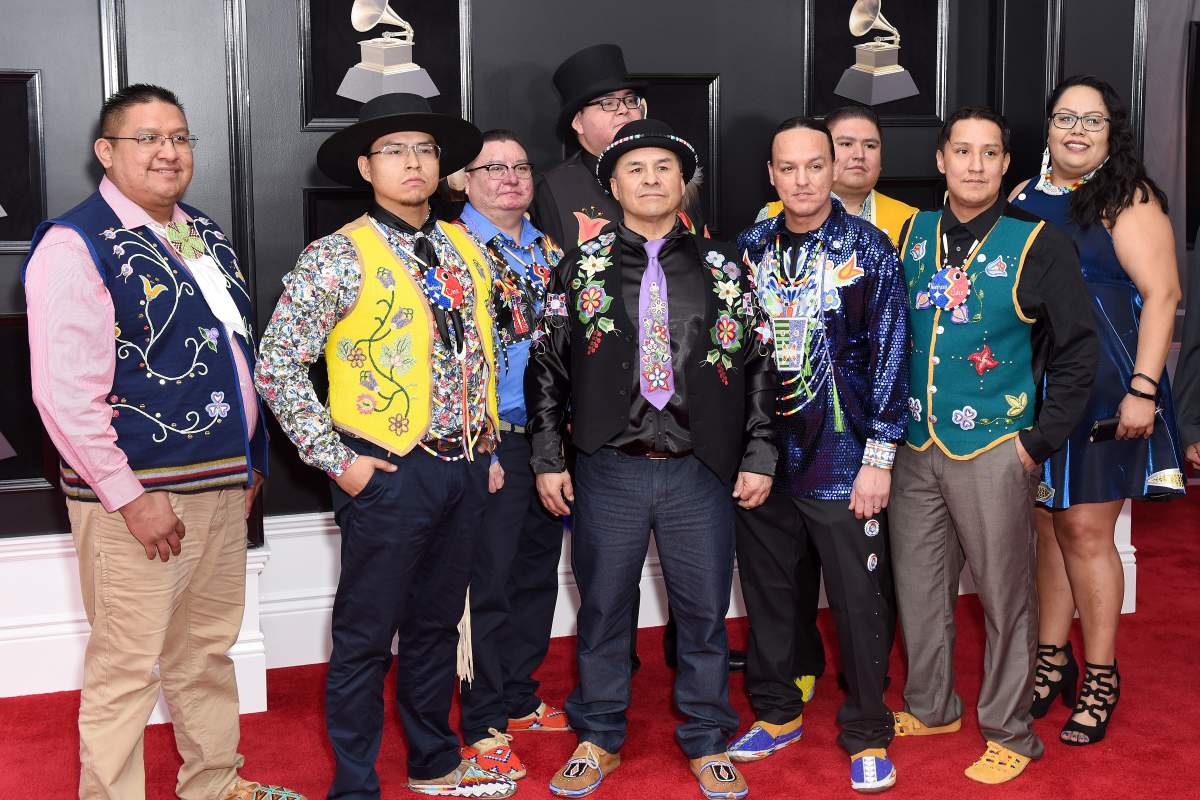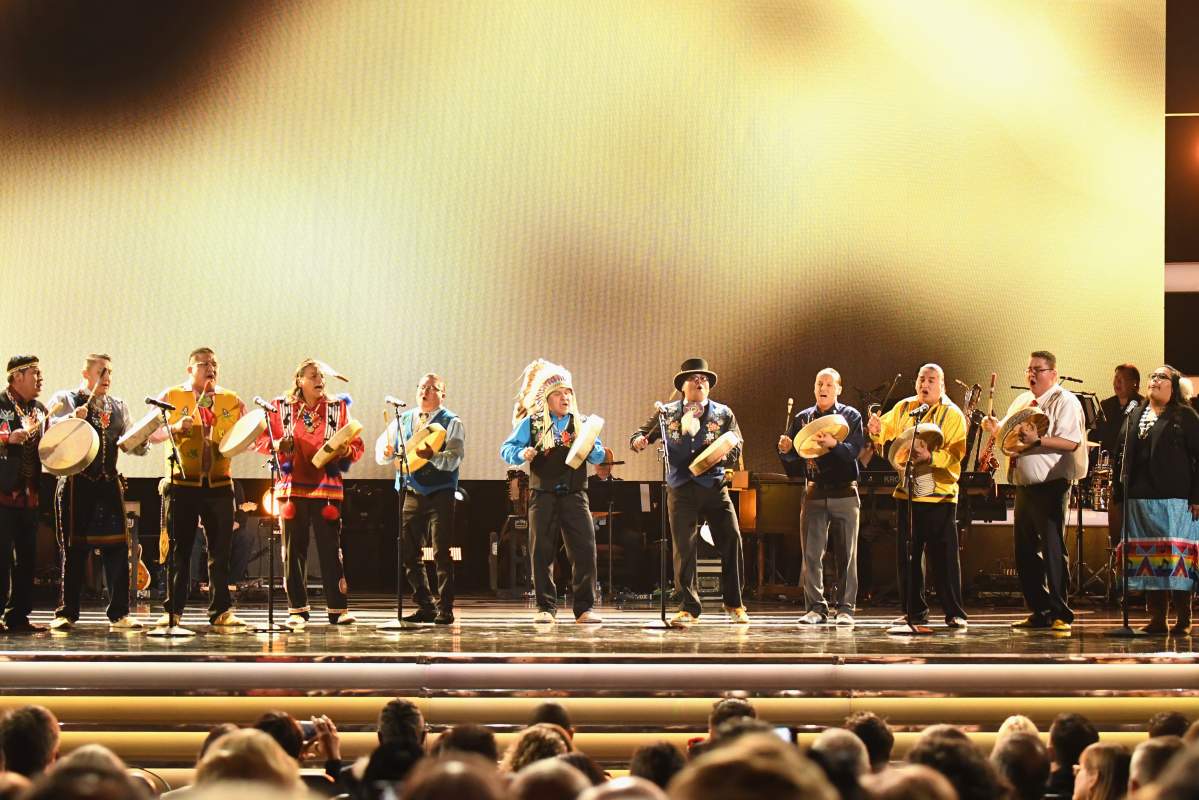Even the biggest pop stars might want to clear the Grammy Awards red carpet on Sunday when Northern Cree arrive dressed to impress.

It’s the ninth time Alberta’s Indigenous singing group is nominated at music industry’s biggest night, and co-founder Steve Wood says he’s planning a few surprises.
READ MORE: Grammy nominations 2020: Lizzo, Billie Eilish and Lil Nas X lead the pack
Among them, expect members of the 17-person act to sport traditional Cree designs that could easily overshadow the edgy threads worn by Shawn Mendes and Lil Nas X.
“Even if you’re famous, you don’t want to be next to us on the red carpet,” Wood says with a chuckle on the phone from Maskwacis, Alta.
“Taking nothing away from any of the artists, what I’m saying is that people are always looking for something they haven’t seen before.”
Since the group’s first nomination in 2001, the 58-year-old leader of Northern Cree has become somewhat of an expert in grabbing attention on the red carpet.
READ MORE: 59th annual Grammy awards features notable Canadian nominees
A couple years ago, the act wowed onlookers when they pulled up wearing vibrant beaded vests, a sharp break from the steady flow of black tuxedos and designer looks on the carpet. Northern Cree didn’t win the Grammy that year, but they had everyone talking.
This year, they’re nominated in the best regional roots category with their 40th album, When It’s Cold – Cree Round Dance Songs, a collection of tracks that acknowledge the good times (The Hippity Hoppity) and the hardships (To All MMIW, a tribute to missing and murdered Indigenous women).
Their Grammy category is stacked with other favourite contenders, including six-time Hawaiian nominee Amy Hanaiali’i and Rebirth Brass Band, a past winner from New Orleans.

Get daily National news
Northern Cree carries a longer history with the Recording Academy than the rest of them, but the singing group is running zero for eight on Grammy wins.
READ MORE: Alberta’s Northern Cree to kick off Grammys in L.A.
While leaving empty-handed for so many years would’ve left many artists feeling slighted, Wood insists his fellow members are nothing less than auspicious winners even without a golden statuette to their name.
“If you look at the positives, it’s giving us an opportunity to get recognition for our music,” he explains.
“We’re representing First Nations people across North America, but we are also representing the Canadian public. That’s why we’re going to do the best that we can, always.”
Wood created Northern Cree with his brothers Randy and Earl in 1982.
The group originates from the Saddle Lake Cree Nation in northern Alberta, but includes members from the Treaty 6 area, including the Frog Lake Cree Nation, Onion Lake Cree Nation, Samson Cree Nation, Louis Bull Cree Nation and the Poundmaker Cree Nation.
They’ve performed on global stages, which included an opening spot for the Tragically Hip during a Canada Day concert at London’s Trafalgar Square.
Most of the group’s members juggle career jobs outside of music, several of them school teachers. Wood is an education administrator at an Alberta junior and senior high school on top of balancing the group’s schedule.
That’s one of the reasons the Grammy Awards offers Northern Cree a platform they can’t find anywhere else. Not only are international audiences watching the big event, but the auditorium is packed with fellow musicians, which can lead to new opportunities.

Several years ago, rapper M.I.A. and singer Santigold picked a Northern Cree sample for their own original song, while more recently Sacha Baron Cohen’s comedy docuseries “Who is America?” used a pounding electronic track by producer DJ Shub, featuring Northern Cree, as its title music.
And when Northern Cree was nominated in 2017, the Grammy organizers asked the group to play as part of the pre-telecast awards ceremony in Los Angeles. The performance shook the room, even before Mexican singer Carla Morrison joined them on stage.
READ MORE: Five Canadian things to watch for at the 2017 Grammys
Wood says it’s those pure Grammy moments that mean the most.
“I like to get the music out in its original form,” he says.
“When we hit those mainstream stages, the audience is in a little bit of awe until they can feel it. But when they feel it, it turns into a rock concert.”







Comments